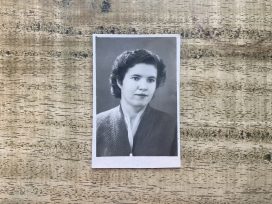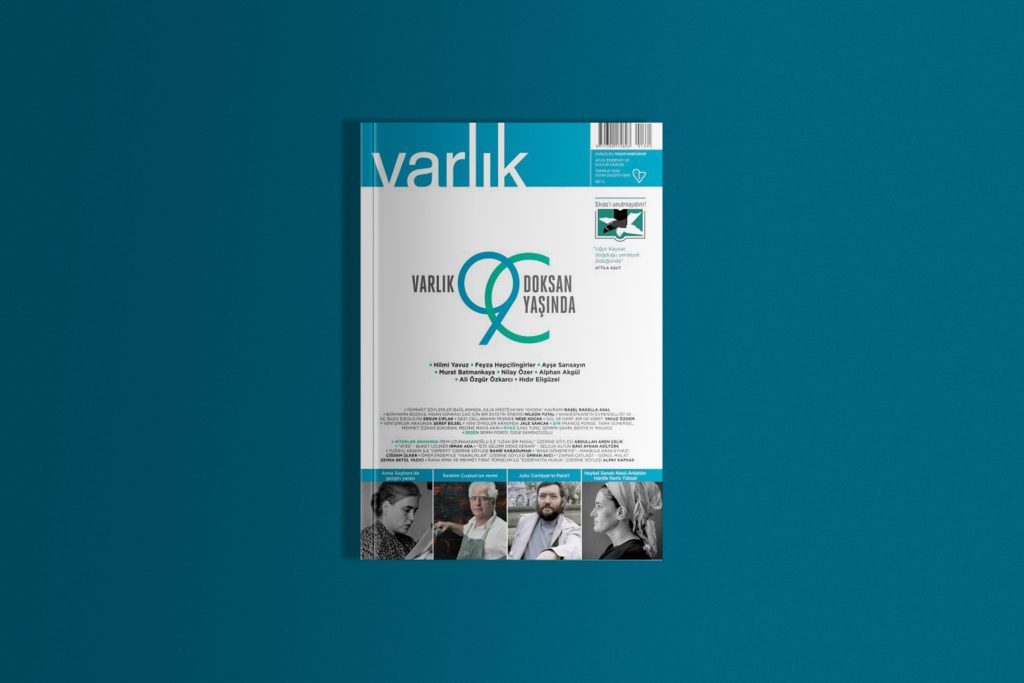
Går det att skriva under pågående krig? Vad är poängen? Medan Olena Myhasjko skrev klart denna essä slog en rysk missil ner etthundra meter från hennes lägenhet i Charkiv.
A Turkish literary institution turns 90: reflections on Varlık’s evolution and achievements, as well as notable omissions. Also: On the country’s loss of intellectual moorings under Erdoğan and why culture depends on ‘the suspension of power’.
Only ten years younger than the Republic of Turkey itself, Varlık devotes its July issue to an accounting of the journal’s first 90 years. In its early days Varlık marched in step with the modernising spirit of the new order under Mustafa Kemal Atatürk, but today the editorial stance sets itself at a distance from the conservative administration of President Recep Tayyip Erdoğan. But what emerges is a portrait of a nation where freedom to publish has always been precarious. It’s also a warts-and-all account of Varlık’s achievements, as well as the artists and artistic moments that it missed.
Ayşe Sarısayın goes through the archive of her father, the poet Behçet Necatigil, to show how the artist’s career was shaped and encouraged though his lifelong friendship with Varlık’s first editor Yaşar Nabi Nayır, ‘a complete Istanbul gentleman with thin wire glasses, measured movements and polite speech’. And poet, novelist and columnist Feyza Hepçilingirler recalls her experience of first publication in the magazine in the 1970s and the role Varlık has played in launching generations of new writers through awards named after the first editor.

Elsewhere, Nilay Özer goes through the archives in search of the leading lights of Turkish feminism. The pickings are thin: ‘In conclusion, it can be said that from the Ottoman era to the present day, Varlık was not concerned with the women’s movement and feminist literature in Turkey, at least not in a planned and programmatic way. If articles on those topics appeared, of course they were published, but the journal had no policy of tracking the feminist movement and literature.’
Still, things at Varlık have improved since the 1990s, Özer says. Under editor Enver Ercan, the journal published work by or on writers such as Adalet Ağaoğlu, Füruzan, Tomris Uyar and Leylâ Erbil. She also notes current editor Mehmet Erte’s determination to ‘excavate’ unique and interesting work by women academics.
Ali Özgür Özkara also begins his history of the journal by noting the absences. In the 1940s and 50s, readers of Varlık would not have found the work of the jailed and then exiled poet Nâzım Hikmet, nor that of Ercümend Behzad Lav. The reason, Özkara says, is that ‘until the fifties, the stance that Varlık defined for itself was not to test the codes of the founding Kemalism’.
The journal, ‘never became a subject or place for ideological polarization. It simply tried to remain true to the founding modernity.’ The result, Özkara argues, was the exclusion of political and heterodox forms of poetry that led to Varlık becoming the ‘guardian of the lyrical canon’.
Alphan Akgül attempts to place Varlık in the contemporary Turkish context. Drawing on essays published in the journal in recent years, he describes a country that has lost its intellectual moorings under Erdoğan.
‘The main reason for our loss of a cultural reference is the fact that the political power, despite being at peace with capitalism, bears almost hatred for western culture.’ This disconnection from western critical approaches, Akgül says, has caused Turkey to become ghettoized: ‘We kicked down the ladder with our own feet, just as we had reached the top.’
In recent years, many figures in Erdoğan’s government have wondered why they have been unable to dominate cultural production in the way they have controlled other aspects of Turkish life. According to Akgül, this is because their political programme pervades everything: ‘They cannot intellectualize the phenomenon of “culture” without reactionary political discourse.’
Varlık retains its links to western thought and critical analysis and is something of a mirror image of the Erdoğan government. ‘Being decisive in the cultural field sometimes requires the suspension of power, this is what Varlık does most of the time: step back and show what is…’
Published 20 July 2023
Original in English
First published by Eurozine
Contributed by Varlık © Eurozine
PDF/PRINTSubscribe to know what’s worth thinking about.

Går det att skriva under pågående krig? Vad är poängen? Medan Olena Myhasjko skrev klart denna essä slog en rysk missil ner etthundra meter från hennes lägenhet i Charkiv.

What happens when the space for youthful aspiration caves in? When circumstances are extreme, can solace still be found in a daydream, a creative thought beyond the everyday? And what role might contemplative words have in crisis?